8, January 2021
Yaounde: With no power over government, Prime Minister Ngute digs in heels 0
Though technically the highest-ranked minister, Joseph Dion Ngute is only the head of government in name and it is Paul Biya’s advisors who manage the executive’s day-to-day actions.
It is not strange in the minds of every Southern Cameroonian. For over 57 years after independence and re-unification, there has never been an Southern Cameroons President or a Southern Cameroons Secretary General or Director of Civil Cabinet at the Presidency of the Republic. Nor has any British Southern Cameroonian ever held the strategic ministerial portfolio of Defense, Finance, Communication, and External Relations or even in charge of the Police, Gendarmerie, the Army and Intelligence services; not even ambassadors to English-speaking countries like the USA and Nigeria. For a region that represents about 20% of the population, accounting for over 60% of GDP, the fact that the lone oil refinery named in French (SONARA) is in Southern Cameroon, yet has been run by Francophone general managers with a predominantly Francophone workforce since its creation is unacceptable. It just cannot be that there are no competent Southern Cameroonians to occupy these positions.
Higher institutions like the National Polytechnic, ENAM, IRIC, ESSTIC, INJS, IFORD, CUSS, Public Works, ENSPT, IRAD, are heavily laden with French courses; another way of saying, British Southern Cameroonians need not apply.
Although La Republique du Cameroun passes officially for a bilingual country where both English and French are equal, the head of state has never ever made an official address to the nation in English! All official correspondences are in French, even when directed to British Southern Cameroonians. French is the language used in the administration, police, gendarmerie, army and the courts. Southern Cameroonians have to seek translators at their own expense. All road signs are in French and there is not a single word in English on the FCFA currency in circulation. Chief Dr Dion Ngute understands that this is not constitutional.
French Camerounians occupy all key positions in the Supreme Court – President of the Supreme Court; Attorney General; Head of Judicial Division; Head of Administrative Division; Head of audit Division; Head of Special Criminal Court; Special Attorney Special Criminal Court; Director of Military Justice; Registrar-In-Chief Supreme Court and Secretary General Supreme Court. 58 (39%) of the 148 magistrates in the Southern Zone of Ambazonia are French Camerounians while 54 (61%) of the 89 magistrates in the legal department in the same Southern Zone are French Camerounians. Prime Minister Dion Ngute is aware!
Of the 128 magistrates in the Northern Zone of Ambazonia, there are 67 French Camerounians (52 %). Of the 97 magistrates of the legal departments, 64 of them are French Camerounians, (65.9%); 22 (48.9%) of the 45 magistrates in Bamenda are French Camerounians. There are 27 magistrates in the legal department in Bamenda of which 21, (77.8%) are French Camerounians. Prime Minister Dion Ngute is very much aware!! There is no reference hospital and no functional airport or seaport in the entire Southern Cameroons.
Back by the French government in Paris ever since the so-called reunification, Yaounde has made it a point to assign French Camerounians who neither speak nor understand English to British Southern Cameroons.
French Camerounians disrespect British Southern Cameroonians in positions of authority, even the prime minister, head of government. Francophone ministers either ignore cabinet meetings called by the PM or come late, in breach of standard protocol.
By Chi Prudence Asong with files from Ekinneh Agbaw-Ebai



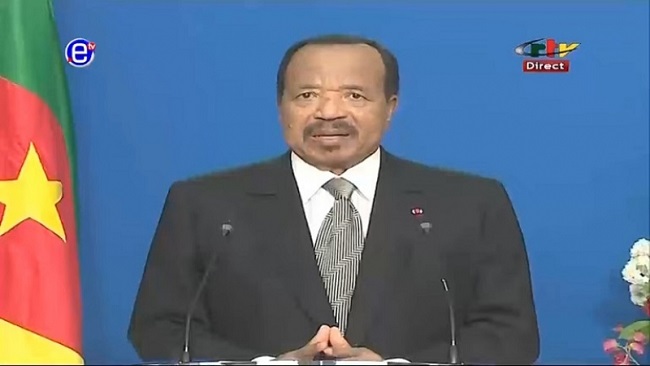

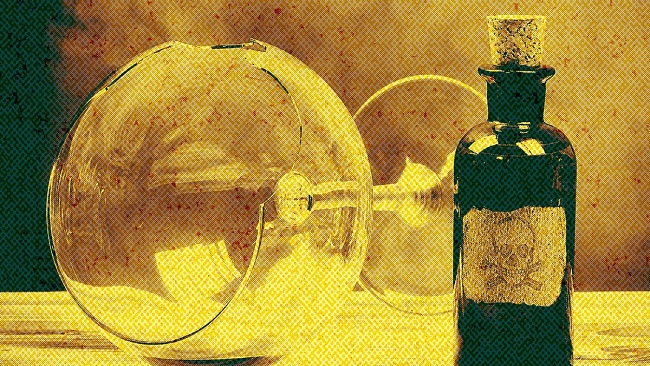
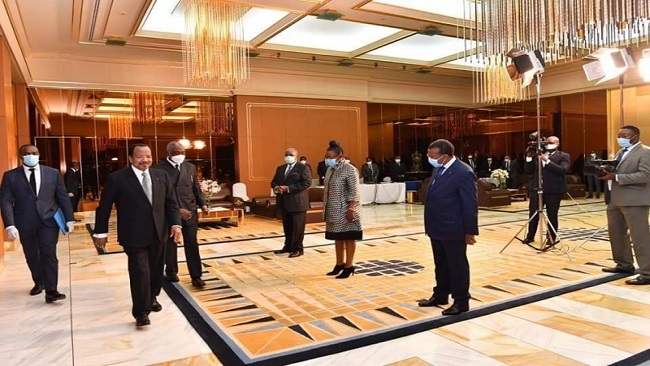
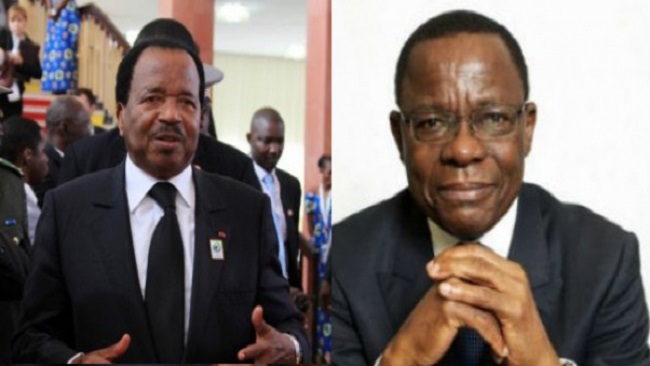



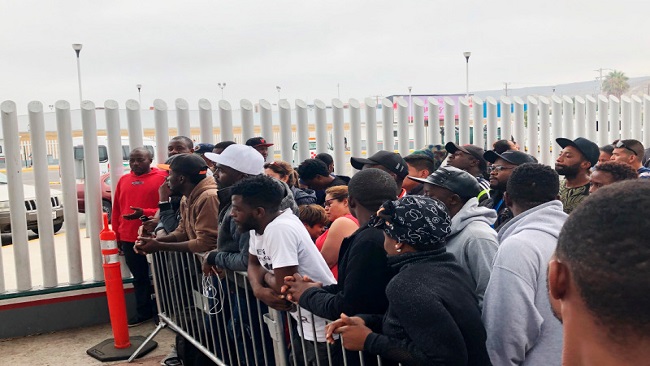











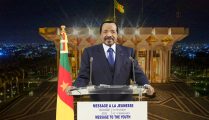






14, January 2021
Unity Palace: Minister Ferdinand Ngoh Ngoh says Anglophones are traitors 0
After four years of silence on the government’s part over the Southern Cameroons Crisis, some major cracks are gradually appearing on the government’s wall with the Secretary General at the Presidency, Ferdinand Ngoh Ngoh, turning on English-speaking ministers, accusing them of being hypocrites and liars.
For four good years, Anglophone ministers have toed the party line, even ensuring that they did not criticize the government or the military for its dismal handling of the crisis that has hit the country’s two English-speaking regions, even when some of their family members get killed in massive and reckless raids organized by a trigger-happy military.
Most Anglophone ministers know what fate awaits them if they show any sympathy towards the English-speaking minority or if they disagree with the violent military approach adopted by the government against the advice of the international community.
But despite their loyalty to the Yaoundé government and their grave silence about the massacres in their towns and villages, Anglophone ministers and parliamentarians are still being suspected and closely monitored by a government whose stock in trade is corruption.
Anglophone members of government are simply servants who do not have a big say even in the affairs of the ministries they head.
From every indication, they are made to understand that the Head(ache) of State, Paul Biya, is simply doing them a favor and they can be fired at anytime and could be hauled to jail like a piece of junk if they get suspected of anything that runs counter to the policies dictated by the president.
On mere suspicion, an Anglophone minister could be threatened or humiliated even in public and Elung Paul Che, the Deputy Secretary General at the Presidency, was last week made to understand that despite his loyalty, he was in the crosshairs of the government.
Elung Paul Che is someone who hardly cries and it is hard to make him cry. But the Secretary General at the Presidency, Ferdinand Ngoh Ngoh, succeeded to make Elung Paul shed tears.
According to a Cameroon Concord News Group’s source at the Presidency familiar with this incident, the pitiful Elung Paul bursts into tears after having been berated and humiliated by Ngoh Ngoh who arrogantly told him that “you Anglophones are traitors” after a meeting with Mr. Biya who is still baffled by the fact that Anglophone separatists have not yet been put out of business in the two English-speaking regions where an insurgency has been playing out for four long years.
Mr. Biya had been confidently advised that the insurgents would be made to bite the dust in just a few weeks but the insurgency has succeeded to rob the government of some of its revenue streams in the two English-speaking regions and the country’s economy has been hugely impacted by a war that might not be ending anytime soon.
Since the incident, Elung Paul Che has been holding a pity party in his house and has been sporting a lonely and miserable figure at work.
Our source at the Presidency added that Elung Paul might be crying because he is scared of ending up at Yaoundé Maximum Security prison where many of his former colleagues have been jailed for decades on charges of corruption by a president who has make corruption his hallmark.
Elung Paul’s humiliation and frustration are simply not part of a game but they constitute the sad reality that truly reflects the atmosphere within the government.
Elung Paul Che’s misery emerged because of a meeting he had with Mr. Paul Biya without the Secretary General being aware and this has transformed Ferdinand Ngoh Ngoh into a wild animal, our source said.
Ngoh Ngoh is a control freak and he likes being in the know of everything. Elung Paul Che’s non-disclosure of his meeting with the President to his boss was perceived as a gross betrayal of confidence and this did send Ngoh Ngoh into an emotional frenzy.
“You Anglophones are traitors. You know that I brought you here and I have been doing everything to keep you here. You hold a meeting with the President of the Republic and you don’t even have the courtesy to inform me?” the infuriated Secretary General quipped.
Elung Paul struggled to explain himself, but Ngoh Ngoh did not have time for his explanation. He lambasted Elung Paul, accusing him of all the crimes and scenes in the world.
“That’s how you are. You are always plotting against others. Did you think I wasn’t going to know? You know I am always aware of all the appointments and your behavior is a clear betrayal of my trust. There will surely be consequences,” the Secretary General said.
The badly humiliated Elung Paul Che was at a loss for words and he could not really figure out why his boss was so irrational and suspicious of him.
In his confusion, he started crying. He has been a loyal collaborator and his meeting with the president was held at the behest of the president who had asked him to keep their discussion confidential.
But Mr. Ngoh Ngoh was not in the mood to make things easy for Elung Paul who felt his tears could help the situation.
Ferdinand Ngoh Ngoh simply ordered him out of his office. “You can leave,” he ordered the weeping Elung Paul who is being hated by his fellow Southern Cameroonians for his blind loyalty to the corrupt and dysfunctional government.
While leaving Ngoh Ngoh’s office, the weeping boy did all he could to suppress his tears and sadness, but when he got to his office, he wept like a very hungry baby whose mother had gone to the grocery shop.
Not only is his job on the line, his head is also on the chopping block. There is a lot of competition among Mr. Biya’s collaborators and some of that could be nasty.
Elung Paul knows he has not got a good stomach for such a fight and with Ngoh Ngoh having sweeping powers, he knows his days in government are numbered.
Paul, the weeping boy, wept until his loud cries caught the attention of one of his colleagues who was aware of the tensions between the two men, our source said.
Elung Paul might still be working at the Presidency, but he knows that if he does not play his cards very well, he might end up in jail like others before him. The Biya regime knows how to make people, but it also knows how to undo its appointees.
By Soter Tarh Agbaw-Ebai